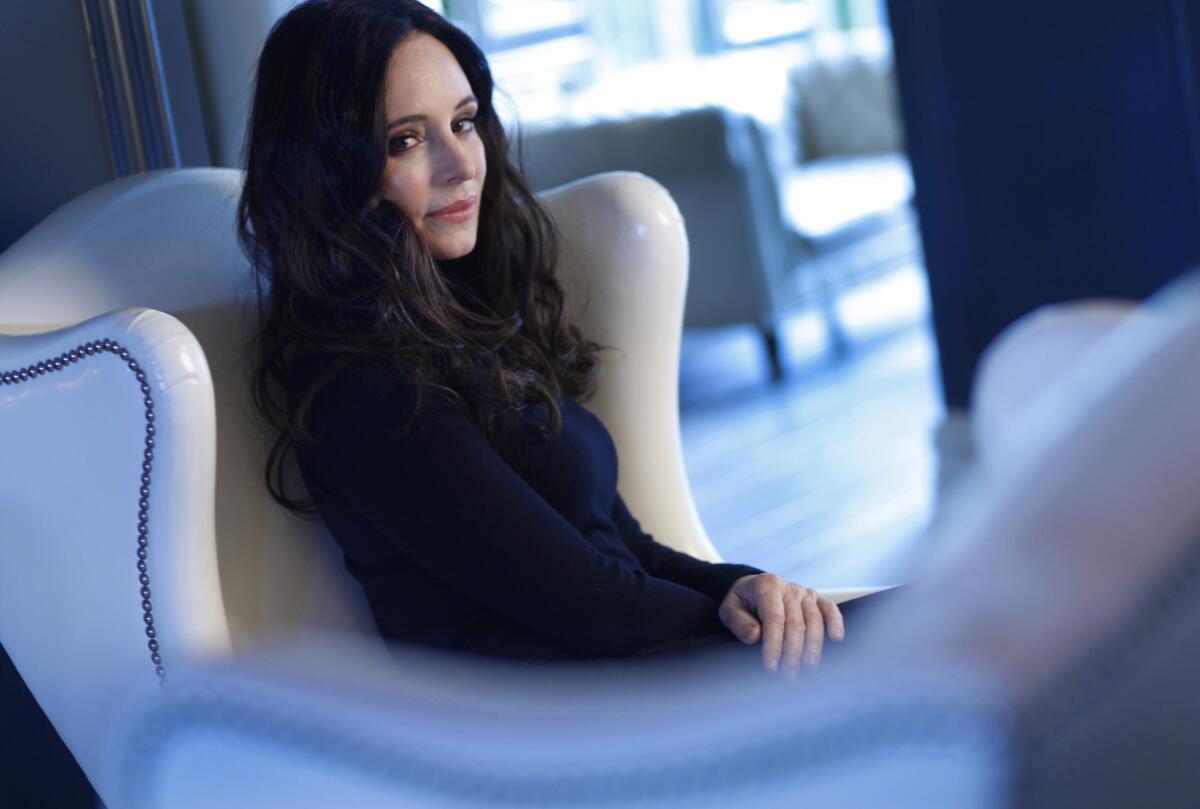Madeleine Stowe reveals father’s battle with MS; campaigns for others

At 4 years old, actress Madeleine Stowe was learning about life’s troubles all too soon.
Her father, Robert, a self-taught civil engineer, was diagnosed with multiple sclerosis, a chronic disease of the central nervous system that causes disruptions in the flow of information between the brain and the body, limiting mobility.
Stowe became his caregiver and helplessly watched her father suffer from MS during a time when there were no FDA-approved treatments. “I had seen MS in a difficult life,” Stowe, 56, told the Los Angeles Times. “It was extraordinarily challenging.”
In recent years, a number of effective FDA-approved MS treatments have developed. And with these advances, Stowe said she sees hope for the MS community.
Stowe, known for her role as the wicked matriarch Victoria Grayson on the ABC drama “Revenge,” is maximizing her fame for a kind of revenge of her own against the disease that helped shaped her life.
She’s partnered with the biotech company Genzyme, a developer of MS medicines, to launch Lights, Camera, Take Action on MS, an initiative designed to educate and empower the MS community to help manage the disease.
Through what she calls an open and honest approach, Stowe is set to speak alongside neurologists and MS sufferers in a series of events taking place in Chicago, Orlando, Fla., and Houston between December and February.
“My goal in sharing my story,” Stowe said, “is not to make people feel bad for my father or what our family went through, but rather, that we each share a common thread.”
By lending her voice to the effort, Stowe illustrates that MS leaves a lasting effect not just on those who suffer from it but on their loved ones as well.
“When patients go through the disease,” said neurologist Ann Bass of the Neurology Center of San Antonio, “it becomes normal for them.
“Sometimes I think it’s harder for family members or anyone involved to deal with the disease -- having to watch their loved ones suffer, not being able to take care of themselves and see them lose control.”
For Stowe, reaching this point of sharing her personal story wasn’t easy because it stirred difficult memories.
Growing up in the then-working-class neighborhood of Eagle Rock with her mother, Mireya, and two younger siblings, Stowe, not far out of her toddler years, watched her father’s condition worsen. As the family did what they could, Stowe helped him get dressed, feed him and turn him over in bed -- anything and everything to be cooperative, she said.
“You love your parents and you don’t want to see them in distress,” Stowe said. “They fall, you fall. I remember feeling there had to be a way around it. There had to be.” But there wasn’t. Not at that time, anyway.
Now with a large body of work to her credit, including the romantic thriller “China Moon” (1994), the sci-fi mystery “Twelve Monkeys” (1995) and the crime drama “The General’s Daughter” (1999), Stowe said she feels like a new woman, “taking the bull by the horns.”
She had shied away from acknowledging the disease in her life after her father died when she was 25. “It was just too much,” she said. But now she’s ready to reconnect with people who are experiencing the same challenges she once did.
“My father’s illness taught me not to take no for an answer,” Stowe said. It’s that mentality she wants to spread through the MS community. By starting treatments early and establishing a social network, Stowe and Bass believe a patient’s outlook is favorable.
“This campaign is recognition [to MS patients and their family members] that they’re not alone,” Stowe said.
Twitter: @christykhoshaba
More to Read
The biggest entertainment stories
Get our big stories about Hollywood, film, television, music, arts, culture and more right in your inbox as soon as they publish.
You may occasionally receive promotional content from the Los Angeles Times.






